Stories
“A Victory of the Common Man”: Farming Community in India Takes on Polluting Company
For over two years the village of Bogribeil was cloaked in a thick cloud of dust. A private company had set up a stone crushing operation on the edge of the small farming community in the Uttara Kannada district of Karnataka, India. The dust threatened the villagers’ health and impacted their livelihoods, polluting the water in the wells and settling on the crops. Farmers like B.T. Gouda and his brother suffered significant losses. “We used to earn INR 130,000 annually by farming,” says Gouda, “but last two years we could only earn INR 50,000 a year.”
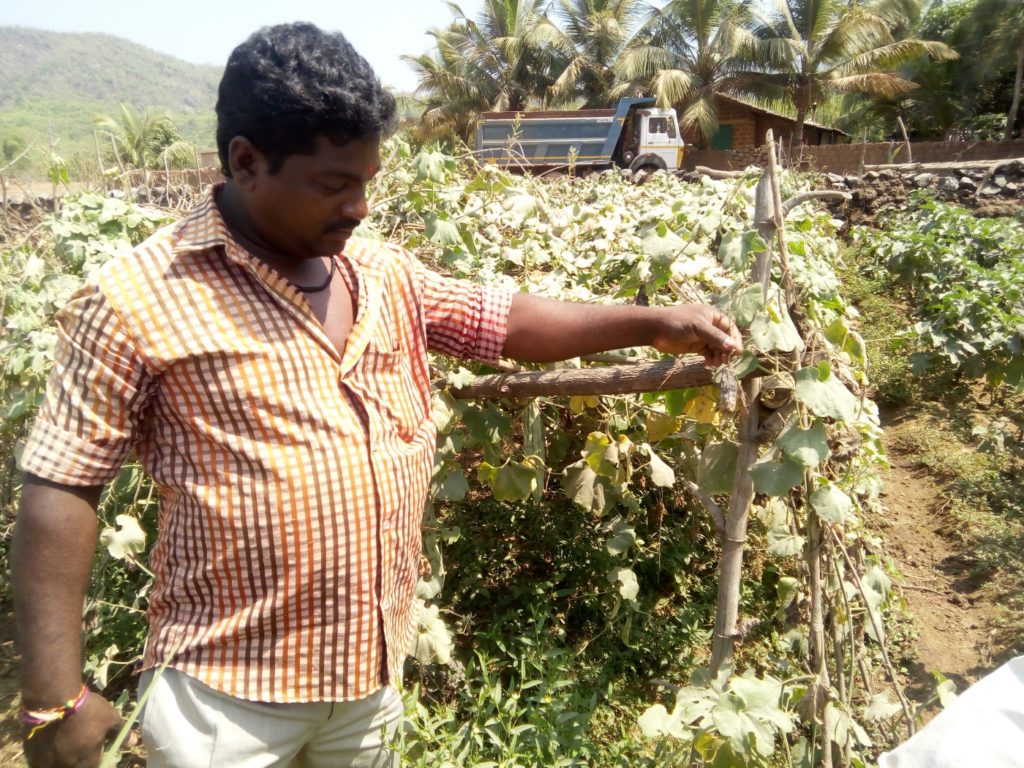
Ravi Gouda’s crops have been coated in damaging dust from the stone crusher unit.
The community thought the private company’s actions were unfair, but it was not until paralegals from CPR-Namati visited that they realized the company might also be breaking the law.
Maruti and Vinod visited Bogribeil in September 2016 to hold a community legal training session as part of their awareness drive. A few farmers brought up the issue of the stone crushing unit and dust pollution. They told the visiting paralegals how the unit would operate for more than 16 hours a day and how the mango and cashew flowers, clogged with dust, would not turn into fruit and nuts. They said they approached the company numerous times in the last two years, demanding compensation for their losses, but despite assurances, the company never paid.
The farmers were focused on compensation for the livelihood losses, but the women had additional concerns and demands. The dust, they pointed out, was polluting the wells and other water sources, and they were concerned about the long-term health effects breathing in the dust particles would have on their children. “The nursery school is located just 50 meters away from the stone crusher unit and 5-year-old children had to suffer this dust pollution every day,” says Sunita Bai, the caretaker at the school. “I used to clean school premises every hour to make sure that kids don’t play on a dusty floor.”
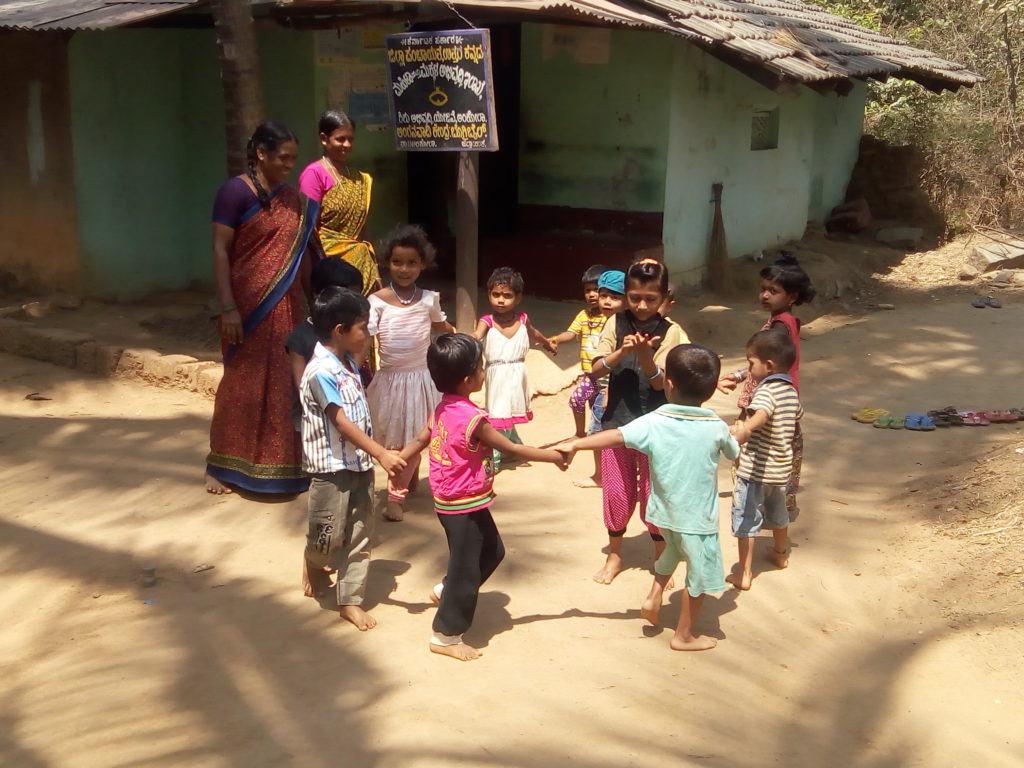
Sunita Bai, the caretaker at the Bogribeil nursery watches the children play.
For the women of the village, compensation alone was not sufficient. They wanted a reduction in the dust pollution.
The paralegals, Maruti and Vinod, shared with the community that this was likely more than an unfair situation, it was almost certainly a legal one: there are environmental regulations that companies have to adhere to by law in order to operate. They decided collectively that the paralegals and a few volunteers from the community would probe this matter further to find if there was, in fact, a legal hook they could use to demand sustainable remedies beyond just compensation from the authorities.
Vinod and Maruti gathered all the available legal documents related to the approvals and operation of stone crusher units granted by relevant government authorities and had them translated into the community’s local language. Together with the affected villagers, they carefully examined and discussed the regulations laid out in the documents.
They discovered that the company’s use of the stone crushing unit had been violating a number of major environmental regulations under Air Act 1981, Water Act 1974 and Karnataka Stone Crushers Act 2011, and had been operating without a legal consent from the Pollution Control Board for the last few months. As per the Environmental Clearance guidelines, stone crusher units are supposed to be established within a minimum distance of 500 meters from human habitation, whereas the existing unit was situated just 50 meters away from the village. Additionally, the company was not complying with conditions such as the usage of water sprinklers and high wind-breaking wa
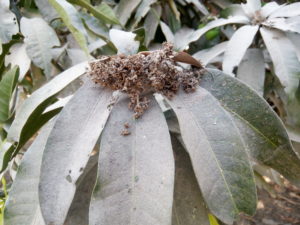
Evidence of dust on a mango flower.
lls to contain the dust suspension in the air.
These findings helped the community members understand why the dust had been so bad and, more importantly, the illegality of the problem. They realized the law was on their side. They decided they would take the issue to the government authorities.
The two paralegals and active community members collected photographic evidence to support their claims and in November 2016, they filed a complaint with the Pollution Control Board and the District Commissioner.
In the complaint letter, they cited the violations along with the resulting impact and demanded immediate action from the authorities to ensure the company addressed the problem of dust pollution and provided compensation for the livelihood losses incurred so far.
The letter proved to be the beginning of a long process. The company had significant political clout; the government authorities were either unresponsive or passed the buck from one institution to another. When they did act it was only to issue ‘show-cause notices’ without prompting any changes in the on-the-ground situation.
But the paralegals and community partners were relentless: they visited the authorities offices, filed follow-up Right to Information (RTI) requests, and reported the issue in the local media in an effort to push the authorities to act. The company tried to persuade villagers to withdraw their complaint with partial compensations to a few, but the villagers refused.
Their persistence paid off. Ten months after the first complaint was filed, the Pollution Control Board made a site visit and issued a direction of action to the company.
Within a few days, the stone crusher unit had installed water sprinklers and a wind-breaking wall to reduce the dust pollution, as directed. The stone crushing machine was shifted in a different direction to minimize the suspension of dust in the wind towards the village. The Pollution Control Board officials took community members for a site visit within the company to assure them of the action taken. The company also paid some compensation to the villagers for both livelihood losses and health risks caused by the dust pollution.
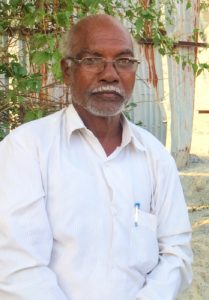
B.T. Gouda a local farmer who worked actively on the case.
This was a major achievement for the community which had been reeling with the problem for close to three years. The issue had been resolved, they received compensation, and they learned that they can use the law to protect their rights and hold those in power accountable.
As B.T. Gouda, an active community partner, says:
“I used to think that I will never be able to stand in front of a higher rank officer and speak, but the knowledge of law and the clear evidence gave me the confidence to not only question the authority but demand a remedy courageously.”
The outcome, says Gouda, “is a victory of the common man.”

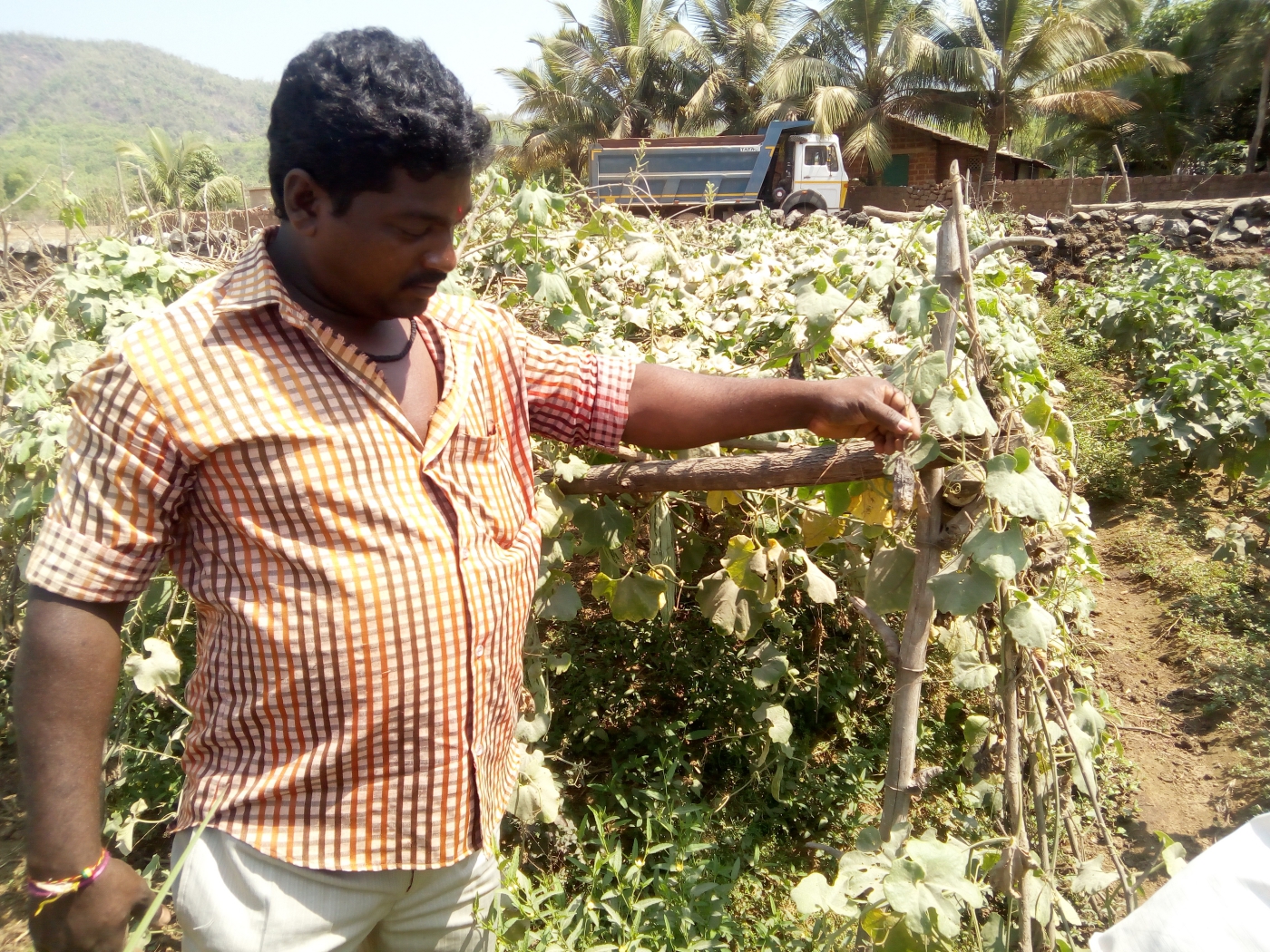
)
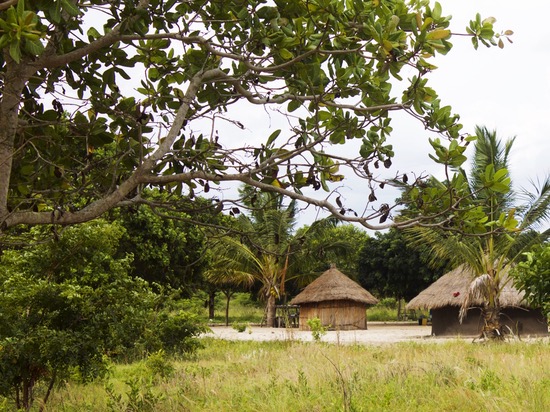)
)